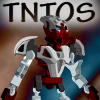Creating Characters
This entry's going to be a bit personal. A lot of the techniques I use here when designing characters' personalities are mostly my own and might not work for everybody, but that's okay. I just wanted to post how I do it. Nobody has to agree with me, and I don't expect them to.
Now onto the entry itslf:
Whenever I start a story, I need to know who the protagonist(s) are going to be. I have to, even if I only have the bare bones of the plot itself. Really, I don't even need to know how the characters themselves look; so long as I know some of their basic personality traits and quirks I'll be happy and will be able to continue on with the story. Characters are the most important part of any story for me, whether it be a novel, short story, fanfic, script, or anything else. If I don't have the characters, I generally don't have the story since they are what drive it (particularly if it the story in question happens to be in first-person, in which knowing at least who the main viewpoint character is is absolutely essential IMO).
When I start, say, a fantasy story, I don't immediately think, "Okay, I'll need the Knight in Shining Armor (or Heroic Mage, whatever you prefer) to figh the Dark Lord in order to retrieve the (insert name of quest object here), which will allow him to save the (princess/kingdom/world/universe/whatever)." I don't do this because it doesn't really allow me to write unique and interesting characters and it is just plain uncreative, too, since I don't like using cliches of any kind unless absolutely necessary. Perhaps you could sum up a story of mine like that (though I haven't ever written a story even remotely similar to that before), but I don't simply make a character a knight (or we could say "Toa" here, if you want) and leave him at that. Back in my old day I probably did that, but not anymore. I like to find out as much as I can about a character before writing him or her, generally during the writing process itself.
You see, if all I did was think of my characters in terms of archtypes (like the Wise Old Mentor, for example) then they will never grow and become their own independent entities. They would become uninteresting cardboard cut-outs solely there to drive the plot, and I hate writing like that. It is disrespectful to the characters and makes it harder for me to write, since I never work well with outlines of any kind. Forcing my characters to do what I want, rather than what they want, is unnatural for me and just doesn't work.
But back to the main point: When I start a story, I think of characters in what the story needs, not what I need. If I make a Wise Old Mentor, is it because I actually need him for the story or because I think that all stories I write should have a character like him with little-to-no variation, even though he has little purpose to the plot itself? It isn't so much the archetype itself that bothers me but the fact that if I wrote a Wise Old Mentor character and kept him like that forever that the story would probably be a lot less interesting than if I let him naturally change in his own way during the course of the story.
True, I may create a character based off an archetype sometimes, but they rarely ever stay that way. They will usually evolve and grow, during both the planning and writing process. That is very good, because if your character manages to actually change and become his or her own character during the course of the story it means you've written a well-devleoped character, at least in my opinion.
Part of the reason outlines never work with me is because I have little control over my characters' actions and I hate having to change what they would do in order for what the plot should be. Outlines may work for some people, but they don't for me. I prefer having my characters tell me the story, rather than me telling them the story. Just feels phony if I have to force them to go here or do this when they really want to go here or do this instead, and they are often far more right than I am.
Doesn't mean I simply let them do anything they want, though. Sometimes, if I think they are deviating too far from the main plot or are in a pointless subplot that doesn't compliment the main plot in some way I will steer them back onto the main plot. This has happened to me a few times, where my characters have gone and done something that is so boring or pointless to the plot that I have to go and rewrite it into a more interesting, worthwhile scene instead. Still, I think following my characters and letting them do their own things is generally for the best.
In closing, when I make characters, I start off with a few simply traits and build from there, while allowing the characters to grow and change beyond whatever traits I may have given them. I never let them stay archetypes (if I have based them off archtypes in the first place) and always allow them to grow and become who they want to be. Sometimes, if they are in a boring subplot, I may have to gently point them back in the right direction, but generally they do a pretty good job of their own figuring out where they want to go, plotwise. I find that way works best, at least for me.
-TNTOS-



3 Comments
Recommended Comments